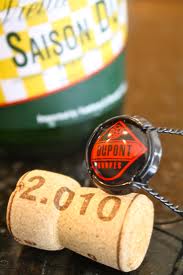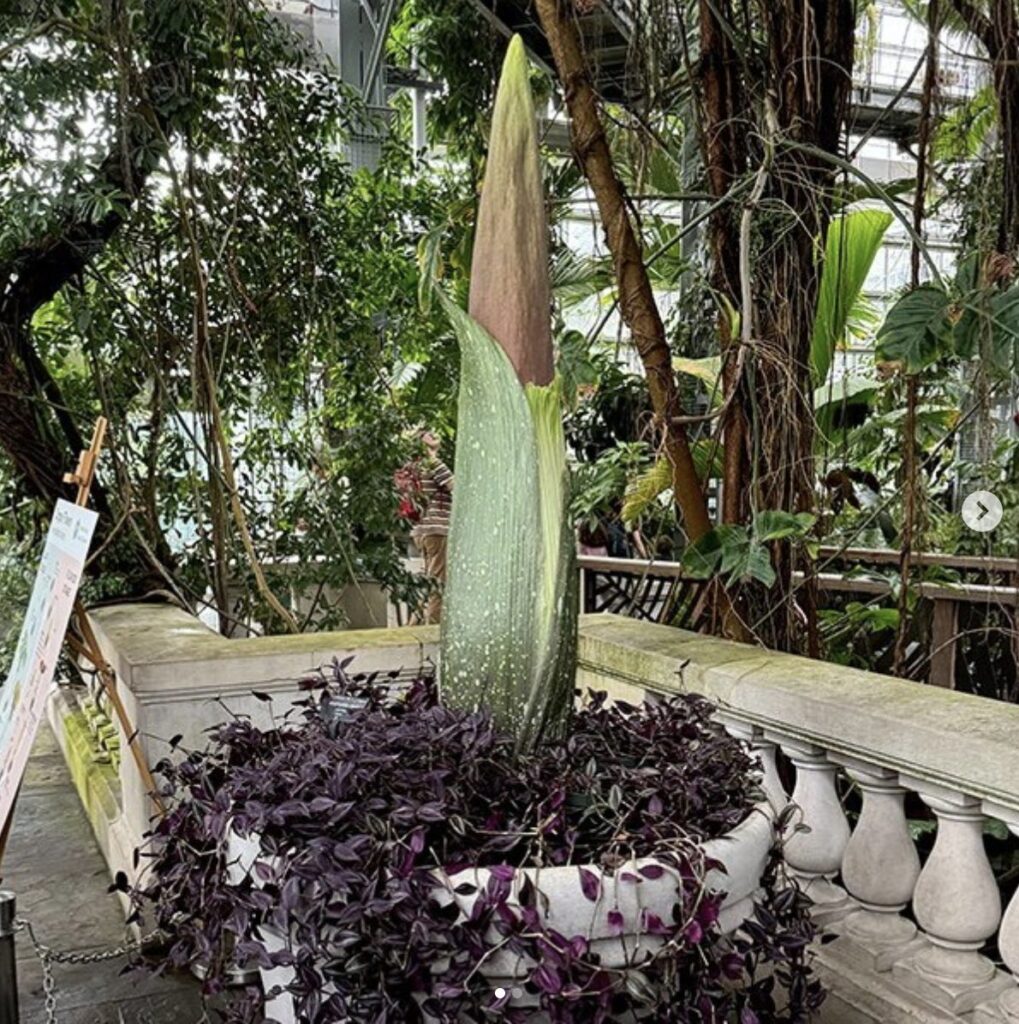
Jack Van Paepeghem is a server at Meridian Pint
To put it simply and probably against conventional wisdom, saisons and farmhouse ales are extreme beers. Ranging from pale straw to opaque black in color; refreshing and sessionable to savory and slow sipping in alcohol character; and simple and restrained to overtly complex in aroma and flavor; these beers exhibit a range of extremes in all aspects. And more often than not, saisons and farmhouse ales are extremely misunderstood. With this said, I want to help dispel some of the historical and contemporary myths surrounding the Belgo-Franco farmhouse tradition and offer some examples of great and accessible year-round brews which contribute to our understanding of this family of beers.
It is most important to note that not all saisons are farmhouse ales, and not all farmhouse ales are saisons. If you have ever found yourself scratching your head while deliberating over various “farmhouse” ales on a beer list or while browsing the beer aisle, this is for good reasons. In short, there is no distinct style as “farmhouse,” as the name implies rather an attitude and a historical condition of brewing practices than any codified style.
While most brewing cultures have roots in farmhouse brewing, “farmhouse” used in the widely accepted sense refers to the areas of southern Belgium (French speaking Wallonia) and northern France. Saisons were born out of the former while northern French farmhouse breweries have historically produced what are called “Bieres De Garde,” which translates roughly to “beers for keeping.” This keeping is another name for lagering, which is the cold storage of beer at near freezing temperatures which restrains fruity yeast characters and highlights the malt body which is generally fuller and slightly darker than typical saisons. Some American-made examples of this style include Schlafly’s Biere de Garde and Allagash’s Fluxus ’11.
Continues after the jump.
The French word, “saison,” means “season,” as these farmhouse ales were typically brewed after harvest season starting around November each year. These beers were to be brewed with enough alcohol and hops to preserve it through the winter and spring but low enough to satiate and not inebriate workers or “saisoneers.” Ale was safer than water at the time and it is reported that during the middle ages workers would consume up to 5 liters of low-alcohol saison per day on average. Winter brewing was ideal because with no harvest to attend to, there was more time at hand to brew, spent grain could be used to feed livestock, and cooler temperatures were most suitable for fermentation and preservation of the beer.
Sure, farmers may seem to be practical folk, but it is also the artistry, creativity, and flexibility of brewers which defines this farmhouse attitude or philosophy. This means that brewers use whatever raw materials they have on hand such as wheat, rye, oat, spelt, and spices such as star anise, orange curacao, ginger, grains of paradise, peppercorn, and coriander, adding to the ingenuity and versatility of these brews.
Over time these reasons for brewing during the winter diminished as industrialization and technological advancements (refrigeration, sanitation, and mechanization among others) transformed farmhouse brewing into a year-round endeavor. However, with the growing popularity of high-gravity foreign imports (British pale ales and stouts alongside Bavarian bocks) into France and Belgium and the ubiquity of modern and mechanized agricultural practices, the farmhouse brewery was nearly obsolete by the mid twentieth century.
In spite of this adversity, it was the steadfastness of Brasserie Dupont which kept the tradition afloat with their array of farmhouse brews. From their flagship beer, Saison Vielle Provision (colloquially known as “Saison Dupont”) and its organic cousin Foret, to “super saisons” such as Moinette and Avec Les Bons Voeux (with ABV’s clocking in at 8.5% and 9.5% respectively), these beers are all driven by Dupont’s extreme house yeast. The yeast can withstand fermentation temperatures of up to 90°F (to put this into perspective, most ales ferment best at 65-75°F) and is incredibly active, lending an overwhelming dryness to the beer. It has been theorized that a red wine yeast strain made its way into Dupont facilities and adapted to brewing conditions—perhaps this is one reason why saisons are perfect gateway beers for the hold-out wine drinker.
Saison Dupont made it to the states by way of a specialty importer in Cooperstown, New York in the late 1980’s. This would go on to inspire the creation of Brewery Ommegang in the same locale, a brewery well known for their flagship saison, Hennepin which would help lead the American saison revival which continues to thrive to this day.
Nobody better embraces the farmhouse tradition in the U.S. better than Brian Strumke, the brains and brews of Stillwater Artisinal Ales out of Baltimore. And while Strumke doesn’t have a farmhouse, let alone a home-base brewery to work out of, his approach to brewing is based on artistry, creativity, and a general disregard for style parameters, yielding one of the most exciting and innovative repertoire of ales as of late. Stillwater’s beers prove that saison and farmhouse ales are fated for year round consumption and enjoyment, seeking perfect company with everything from delicate summer seafood dishes to hearty winter roasts and everything in between.
Stillwater’s lineup includes Stateside Saison, a righteously hopped farmhouse ale made of European malts and hops from both U.S. and New Zealand; Cellar Door, the acclaimed white sage saison; Autumnal, a fall saison showcasing German hops and malts; Harvest Saison, a fresh-hopped saison that boasts zesty and herbaceous hop aroma and flavors; and Existent, a roasty and dark farmhouse ale which showcases earthy hops with a moderate malt sweetness backed by a firm peppery yeast character. Stillwater offers all of these beers in barrel aged versions (wine and bourbon) alongside several other collaboration beers which demonstrate the adventurous and ambitious nature of Strumke’s traveling gypsy aleshow.
In spite of the particular history of the farmhouse tradition and the extreme variation within the “style” of saison, let us not forget that these were the original working man or woman’s beer: simple and satisfying. Sit down, or get up and work, and enjoy the beer for what it is, not what it should or shouldn’t be.
Recent Stories

Photo by Clif Burns Ed. Note: If this was you, please email [email protected] so I can put you in touch with OP. “Dear PoPville, Hey – you stopped me while…

Unlike our competitors, Well-Paid Maids doesn’t clean your home with harsh chemicals. Instead, we handpick cleaning products rated “safest” by the Environmental Working Group, the leading rating organization regarding product safety.
The reason is threefold.
First, using safe cleaning products ensures toxic chemicals won’t leak into waterways or harm wildlife if disposed of improperly.

Looking for something campy, ridiculous and totally fun!? Then pitch your tents and grab your pokers and come to DC’s ONLY Drag Brunch Bingo hosted by Tara Hoot at Whitlow’s! Tickets are only $10 and you can add bottomless drinks and tasty entrees. This month we’re featuring performances by the amazing Venus Valhalla and Mari Con Carne!
Get your tickets and come celebrate the fact that the rapture didn’t happen during the eclipse, darlings! We can’t wait to see you on Sunday, April 21 at 12:30!
Frank’s Favorites
Come celebrate and bid farewell to Frank Albinder in his final concert as Music Director of the Washington Men’s Camerata featuring a special program of his most cherished pieces for men’s chorus with works by Ron Jeffers, Peter Schickele, Amy
Cinco de Mayo Weekend @ Bryant Street Market
SAVE THE DATE for Northeast DC’s favorite Cinco de Mayo celebration at Bryant Street NE and Bryant Street Market!
Cinco de Mayo Weekend Line up:
Friday, May 3:






